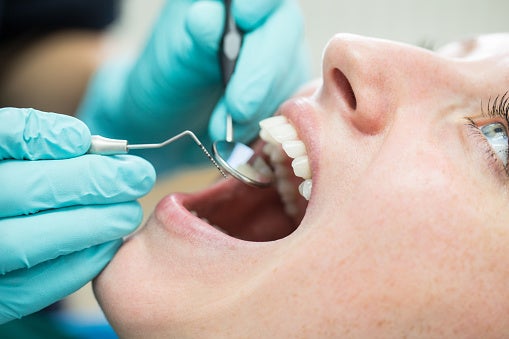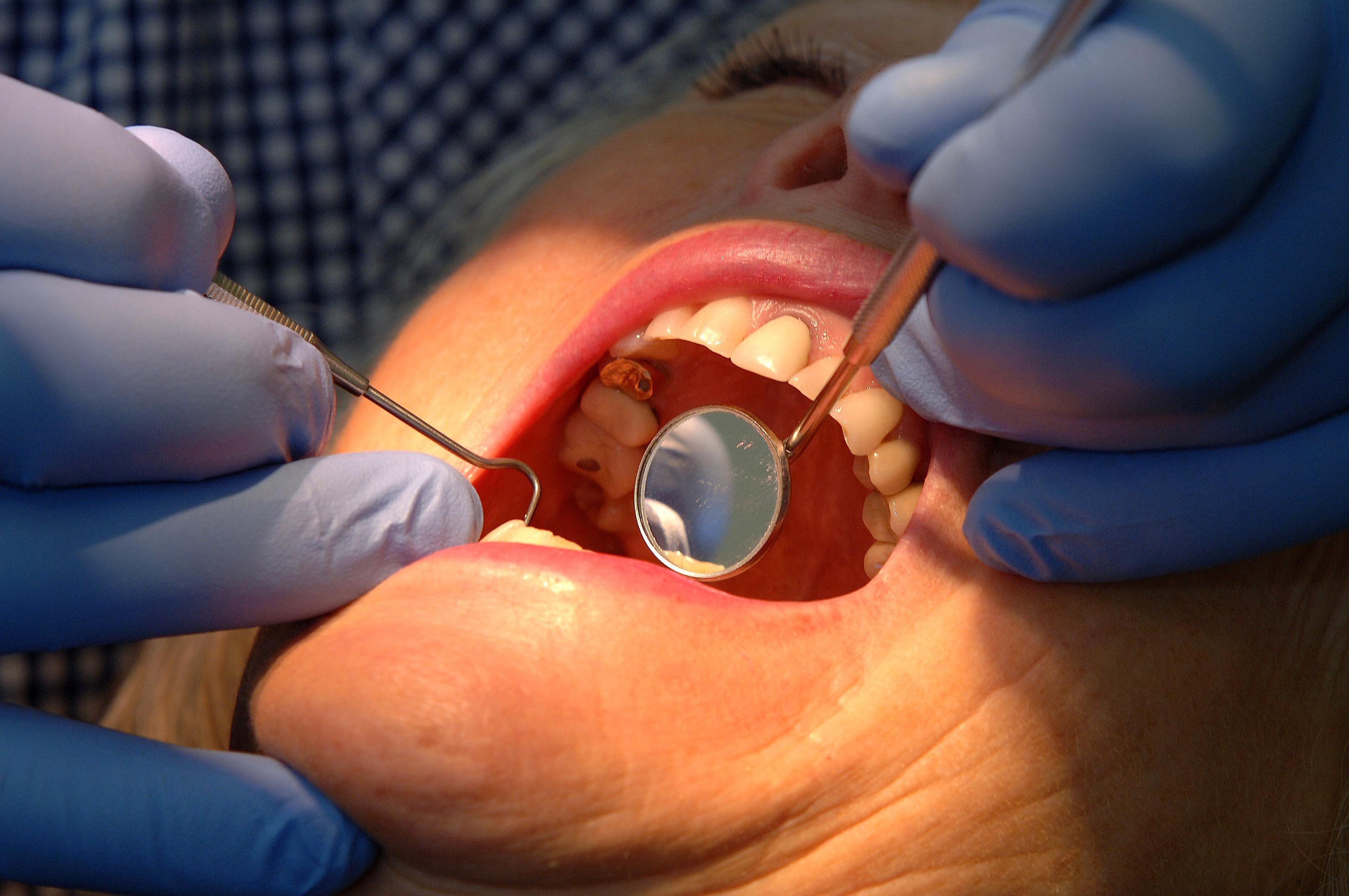Patients living in pain because they can’t get NHS dentist, watchdog says, as service is ‘running on empty’
The patient champion organisation warned of ‘a deepening crisis’ as patients struggle to get appointments

Your support helps us to tell the story
From reproductive rights to climate change to Big Tech, The Independent is on the ground when the story is developing. Whether it's investigating the financials of Elon Musk's pro-Trump PAC or producing our latest documentary, 'The A Word', which shines a light on the American women fighting for reproductive rights, we know how important it is to parse out the facts from the messaging.
At such a critical moment in US history, we need reporters on the ground. Your donation allows us to keep sending journalists to speak to both sides of the story.
The Independent is trusted by Americans across the entire political spectrum. And unlike many other quality news outlets, we choose not to lock Americans out of our reporting and analysis with paywalls. We believe quality journalism should be available to everyone, paid for by those who can afford it.
Your support makes all the difference.People in England are living in pain because they are unable to get access to NHS dentistry, a watchdog has found.
As well as closing off dentists to new NHS patients, Healthwatch England said the problem had been exacerbated by the soaring cost of living.
The NHS body, which represents patients, said some people were living in pain, unable to speak or eat properly, because they could not find treatment.
The poorest in the country who are least able to afford private care were suffering the most, it added.
The watchdog said that a two-tier system, sowing division between the rich and poor, has been created by the crisis, and called on the government to commit “urgent attention” to the matter.
Louise Ansari, national director of Healthwatch England, said: “There is now a deepening crisis.”
“The shortage of NHS appointments is creating a two-tier dental system, which widens inequalities and damages the health of the most disadvantaged communities.
“With millions of households bearing the brunt of the escalating living costs, private treatment is simply not an option and even NHS charges can be a challenge. This needs urgent attention if the government is to achieve its levelling-up plan and tackle health disparities.
“We are once again calling on the Department of Health and Social Care and NHS England for greater ambition and urgency from NHS dental reform plans to create a fair and inclusive dental service. We strongly recommend that a new dental contract is in place before Integrated Care Systems take on formal responsibility for dentistry from next April.”

A spokesperson for the Department of Health and Social Care (DHSC) responded to calls by saying it was “committed” to addressing the issues as part of the levelling up agenda.
It added it was increasing investment in services to improve access as well as looking to reform the system.
An area of particular concern to Healthwatch England is Somerset. It said residents across the whole county have been unable to register as new NHS dentist patients for routine care.
According to Healthwatch Somerset, a third of the calls it received in the three months to February 2022 were about problems accessing NHS dentistry – with many of the calls concerning children, pregnant women and people who cannot afford private dental care.
It also warned that some elderly people in care homes were being struck off NHS dentist lists after not being able to attend an appointment throughout the pandemic.
Many NHS dentists take patients off their lists if they have not attended an appointment in a set amount of time.
One Somerset patient, Lydia Davis, 27, who moved to Bridgwater in early 2020, said she has not been able to find an NHS dentist within a two-hour radius.
She told the PA news agency she suffers from a form of gum disease called gingivitis and her gums frequently bleed when she brushes her teeth. She also needs two new fillings and wisdom teeth removal.
After she was unable to find a local NHS provider, she sought private care.
“Sitting in the dentist’s office, listening to the list of treatments, the cost of £1,100 brought me to tears. These costs were on top of the £50 I had to spend to have the appointment,” Lydia said.
She added: “Whenever I eat and feel a twinge, my heart drops – I panic that something terrible is happening again, I am anxious all the time and my mental health suffers because of it.
“It isn’t fair for people who earn high salaries to be using a cheap NHS dental service while others on low incomes go into debt trying to look after themselves.
“There’s no version of private dentistry that’s affordable. Even using the word ‘affordable’ for private dental care is a slap in the face when you are paying your taxes towards a vital service you have no access to.”
A survey of more than 2,000 adults in England commissioned by the NHS body found that around half of those surveyed had visited an NHS dentist in the past two years.
Of those, 41 per cent said it had been difficult to book an appointment, 20 per cent said they could not access all the treatments they required, while 17 per cent felt pressurised to pay privately.
Of those that had not seen an NHS dentist, the majority either did not need treatment, chose not to go to the dentist or were prepared to pay for private care.
But 21 per cent said they had wanted to get NHS treatment, but had been unable to find any dental services locally.
Shawn Charlwood, chairman of the British Dental Association’s general dental practice committee, said: “For over a decade this service has been running on empty, our patients paying more just so the Treasury can pay less.
“Choices made by government mean dentists are now walking away from the NHS while millions go without the care they need.
“A problem made in Whitehall needs to be fixed in Whitehall, with real reform and fair funding.”
An NHS spokesperson said: “Dentistry is an important NHS service and that’s why we have taken unprecedented action to support NHS dentists including providing financial protection to ensure dental practices can continue to offer valuable services for patients, and committing up to an additional £50 million for people requiring urgent care treatment.”
A Department of Health and Social Care spokesperson said: “We’ve given the NHS £50m to fund up to 350,000 extra dental appointments and we are growing the workforce so people can get the oral care they need.
“Throughout the pandemic, we’ve asked dentists to prioritise available capacity on vulnerable groups and those with an urgent need, while continuing to provide free dental care to groups such as pregnant women, young people, and those on low-income benefits.
“Now as we learn to live with Covid, we are committed to levelling up health outcomes – including on dental issues – across the country, and ensuring that everyone has the chance to live longer and healthier lives, regardless of background.”







Join our commenting forum
Join thought-provoking conversations, follow other Independent readers and see their replies
0Comments